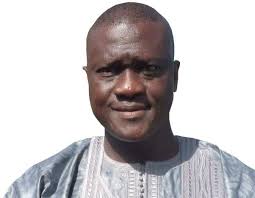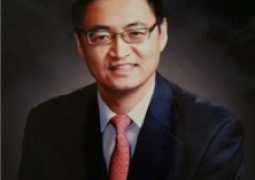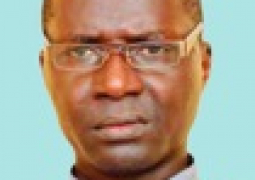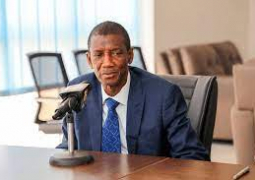
In the first article of this series, I wrote about how my recent visit to China as a participant in the Seminar on Governance System and Modernization for “Belt and Road” Countries revealed practical lessons for national development. Today, I want to reflect on one of the most inspiring aspects of the Chinese system: the cultivation of a professional, morally grounded, and merit-based civil service—a model that offers The Gambia a powerful template for reform.
The Backbone of national progress is the civil servants who earn their posts, a rarity in The Gambia. China’s civil service system is not driven by political connections, tribal allegiance, or party loyalty. Instead, it is underpinned by a deeply ingrained culture of discipline, competence, and morality. Entry into the civil service—especially at the senior level—is rigorously competitive, and once in, civil servants must undergo continuous evaluation, training, and ethical orientation. A system that can be and should be adapted in The Gambia.
At Zhejiang Normal University, we were introduced to a powerful concept: “Virtue and Competence” as dual pillars of public service. These are not just words in a slogan—they are embedded in the recruitment, promotion, and assessment systems.
The Chinese Model in Brief: Merit + Morality
- Entrance by Exam – Not Connection. Aspiring civil servants in China must pass highly competitive national and provincial exams that assess not only intellectual capacity but also general knowledge, decision-making ability, and public ethics.
- Moral Integrity as a Core Competency Beyond academic success, candidates are evaluated on their moral standing, including commitment to public service, honesty, and conduct both in and out of office.
- Training Never Stops . Once recruited, civil servants undergo mandatory professional development in governance, policy, and ethics. They are expected to stay updated and improve constantly.
- Promotion Based on Performance. Advancement is based on clearly defined results—measurable outputs, leadership skills, and impact at the grassroots level. There is no room for favouritism or political short-cuts.
Where The Gambia Stands – A Tough Truth
Our civil service is filled with talented people—but it is also weighed down by a culture of “maslakha”, nepotism, political interference, and weak accountability. Often, appointments are made not on what someone knows or has achieved, but on who they know or what party they support.This system does a disservice to Gambians who work hard, study hard, and want to serve their country with integrity. Worse, it leads to inefficiency, demoralization of honest workers, and a lack of public trust in our institutions.
Now is the time for reform , adapting the Chinese approach to Gambia’s reality. We don’t need to copy China’s civil service model wholesale. But we can adapt its core principles and make them work for us.
Merit-Based RecruitmentLet us introduce a national civil service entrance exam for all mid- to high-level public service positions—standardized, independent, and transparent. This will ensure that competence—not connections—decides who serves.
Ethics and Discipline as Criteria. In China, character matters as much as competence. In The Gambia, we should incorporate background checks, ethical screening, and community references into public service recruitment—especially for leadership roles.
Continuous Training and EvaluationA modern civil service needs ongoing learning. Our public servants must be retrained regularly in governance, public ethics, digital systems, and policy formulation.
End Political InterferenceOnce someone joins the civil service, their loyalty must be to the people and the constitution, not any political party. We need strict laws against politicizing civil service appointments and promotions.
Youth Inclusion and Fast-Track SystemsChina’s civil service nurtures young talent and prepares them early for leadership. We can create scholarship-to-service pipelines, where our brightest students are groomed for public service with a focus on character, leadership, and patriotism.
The Gambian People Deserve Better. A government is only as good as the people who run it. If we want Vision 2050 to become a reality, we must staff our public institutions with men and women who are competent, ethical, and selfless. These people exist—but our system must allow them to rise.Civil Service Reform is Nation Building. This is not about punishing anyone. It is about building a system where everyone gets a fair chance, where hard work is rewarded, and where the public service becomes a national pride—not a political battleground. If China can do it —with over a billion people—then The Gambia, with just over two million, certainly can. WE CAN DO IT, YES WE CAN.





